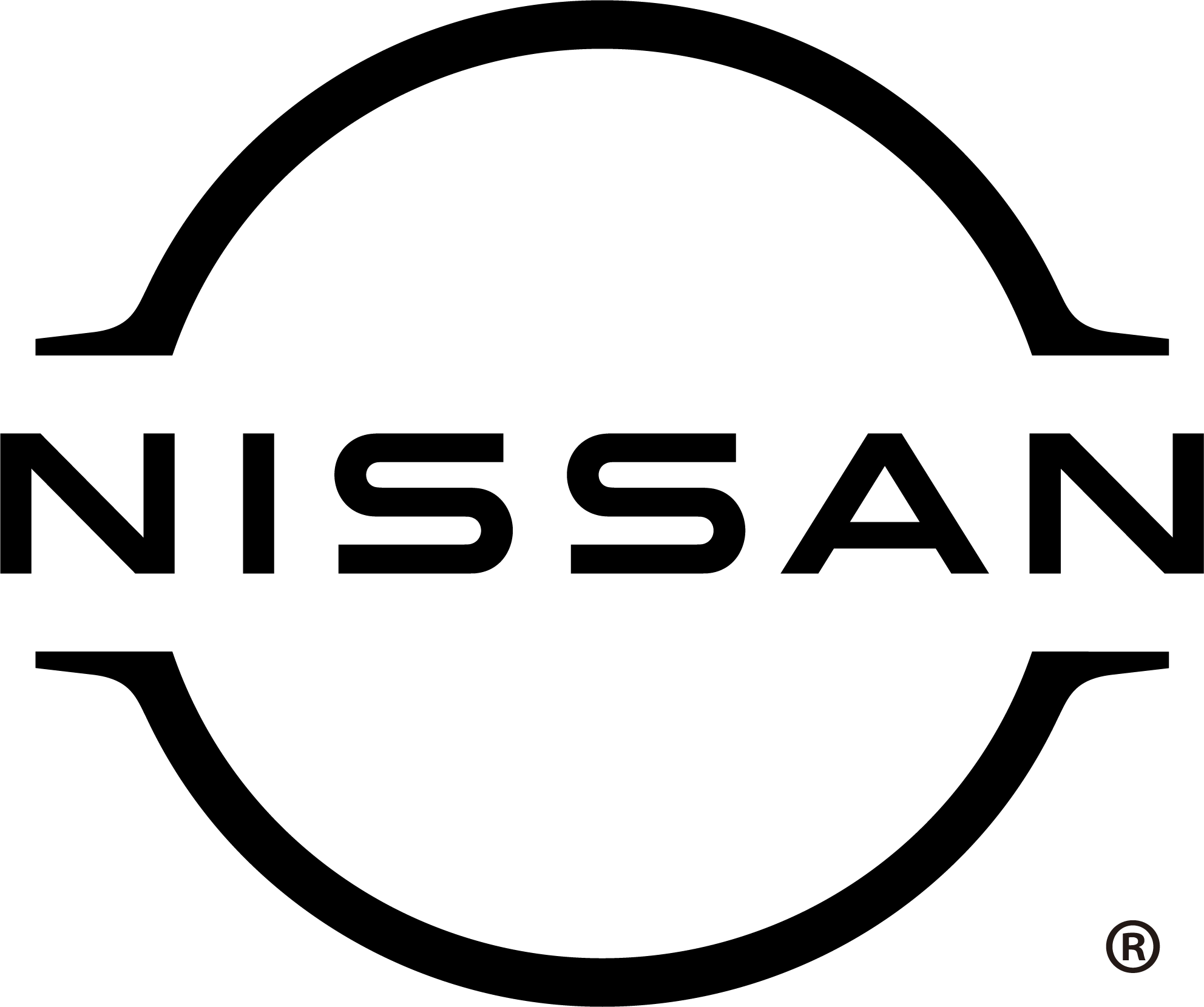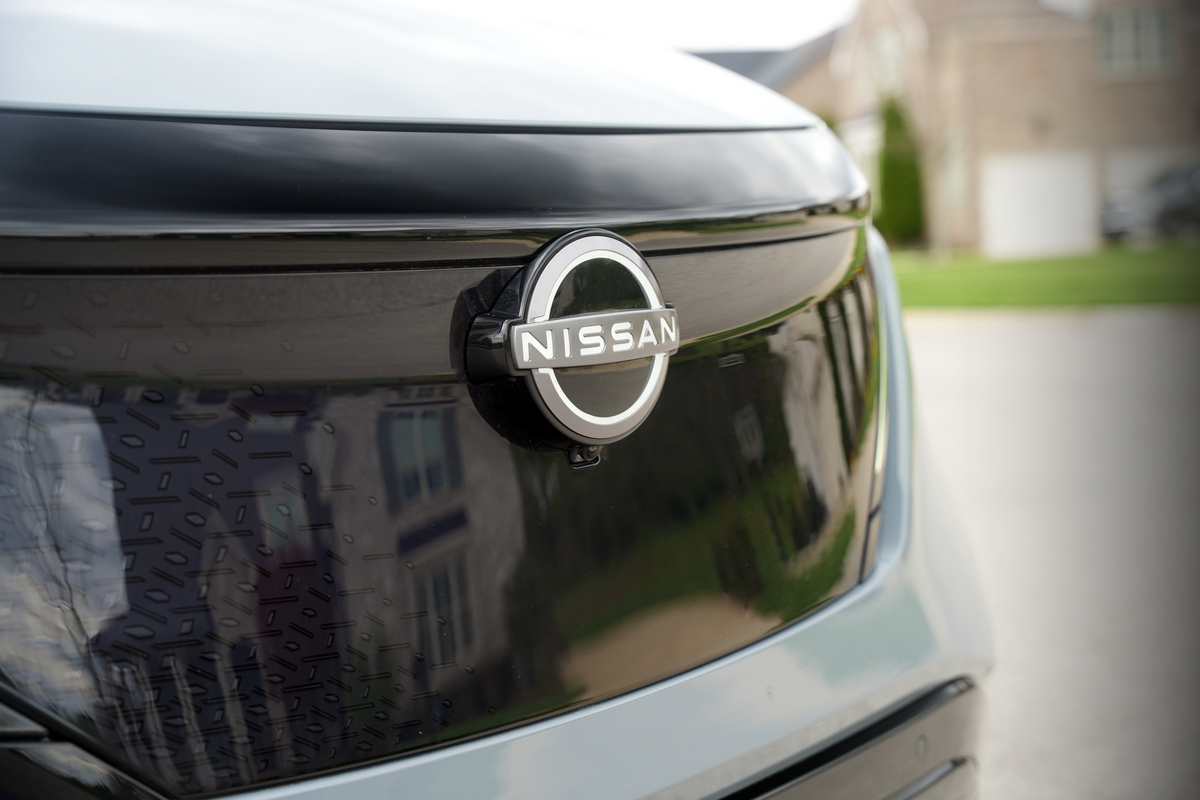
Range options for your Nissan EV
Travel further on a single charge 1,2
Nissan's EVs offer a variety of battery sizes which power different ranges. The 2023 ARIYA is available with two battery options – one 87 kWh and one 63 kWh. The ARIYA VENTURE+ 87 kWh battery version has an EPA estimated range of up to 304 miles.3 The 2023 Nissan LEAF also offers two battery options with the larger 60 kWh battery offering an estimated EPA range of up to 212 miles on a single charge in the LEAF SV PLUS version. The LEAF’s range is up to 149 miles with the standard 40 kWh battery in the LEAF S.4
Both vehicles offer Eco Mode – a feature that boosts the vehicle’s already impressive efficiency. On downhills, use B-Mode to capture and convert braking energy into charge that's then returned to your battery.
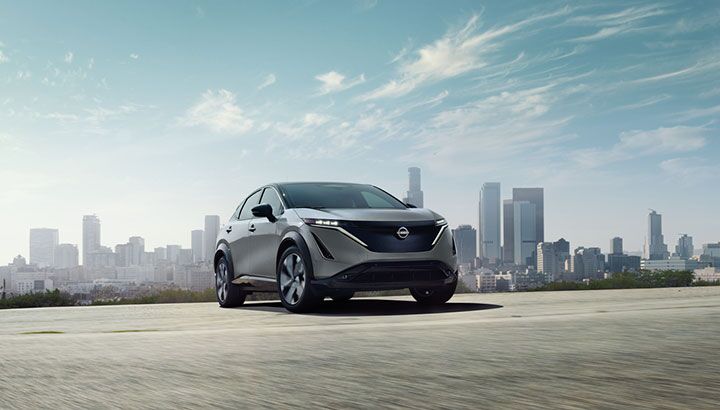
Nissan ARIYA
Maximum Range: Up to 304 miles with VENTURE+3
Battery: 87 kWh option
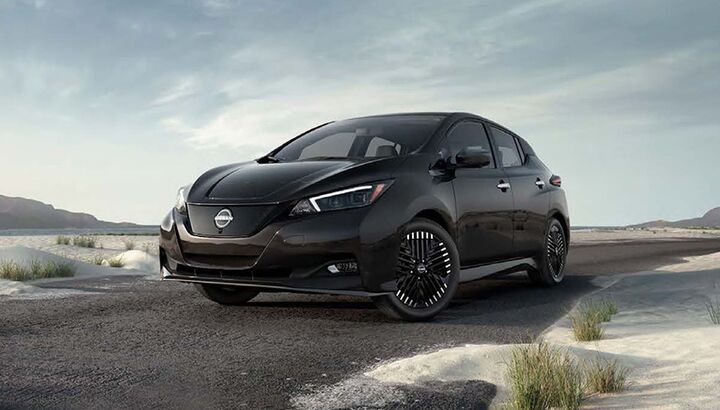
Nissan LEAF
Maximum Range: Up to 212 miles with LEAF SV PLUS4
Battery: 60 kWh option
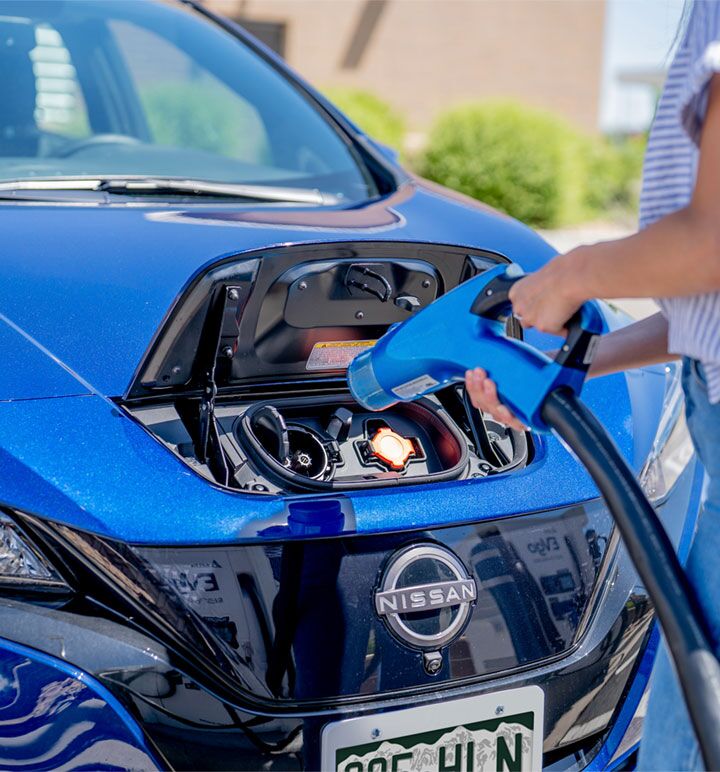
Electric vehicle charging 101
Easy EV charging
Charging your new EV is simple.2 Follow these steps at any compatible charging station:5
Nissan ARIYA
Park your Nissan ARIYA and make sure the vehicle is turned off.
Open the charge port lid and cap.
Plug the charge connector into the charge port. When done correctly, your EV lets you know with a quick beep.
When the battery is fully charged, your Nissan ARIYA stops charging on its own.
Nissan LEAF
Park your Nissan LEAF and make sure the vehicle is turned off.
Turn off the vehicle and press the charge port release button to open the charge port.
The vehicle can be turned on immediately after
If the charge port is open, you can plug the LEAF in while it’s on and it will begin charging
Plug the charge connector into the charge port. When done correctly, your LEAF lets you know with a quick beep.
TIP: An EV battery optimally charges when it has a charge of over 20%, but below 80%.1
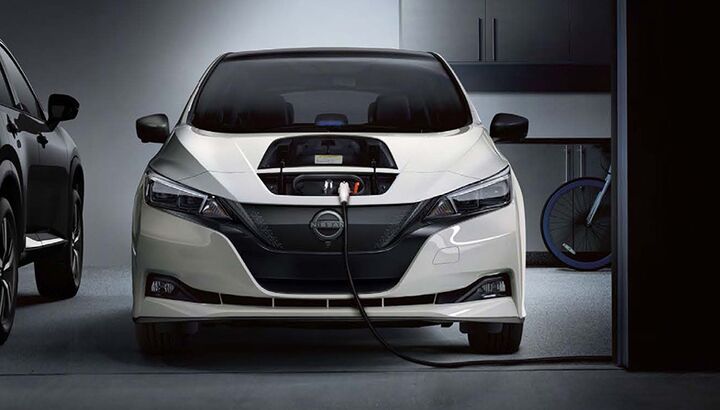
How long does it take to charge an EV?
Charging your EV has never been faster or easier
For many electric vehicles, including select models of the Nissan ARIYA and LEAF, using a quick charge station can provide up to an 80% charge in under an hour.2 However, several factors impact how fast an EV charges, including the type of charging station you're using, the vehicle's battery capacity and maximum charge rate, and even environmental factors like temperature.
While there's no one specific answer, there are key factors that will help you determine the best EV and charging options for you. At Colonial Nissan we’re happy to discuss EV solutions that suit you best.
Level 1-3 charging
Three levels of charging 1
Utilize a Level 1, Level 2, or Level 3 charger depending on where you are and what you need. Learn the difference between the three levels and how your ARIYA or LEAF can charge conveniently at home or on the go.2
Other factors that impact EV charging time
Battery capacity, charge rates and environmental factors can impact charging time.
See customer discloser form for details.1
An electric vehicle's battery capacity is typically determined by its size. In general, batteries with smaller capacities will take less time to charge, while batteries with larger capacities will take longer. However, increased capacity batteries provide more range and require fewer charges.
In the same way that there are limitations based on the specific charge point's rate, each vehicle's maximum accepted charge rate impacts the speed at which it can receive power. This means that an electric vehicle will only charge at speeds up to its maximum charge rate, regardless of the charger used.
Certain environmental factors, such as outside temperatures, can impact how quickly an electric vehicle will take to charge, as batteries are sensitive to severe heat and cold. To avoid damaging the battery, an electric vehicle's battery management system will automatically slow down charging when extreme high or low temperatures are detected.
EV battery warranty.8
Nissan strives to serve all your automotive needs and ensure satisfaction with your EV. Our lithium-ion battery coverage period is 96 months or 100,000 miles (whichever comes first). This warranty covers any repairs needed to correct defects in materials or workmanship subject to exclusions. Limitations apply.
As always, EV specialists at Colonial Nissan are available to answer any questions you might have.
Where to charge your Nissan EV
Ever-growing charging networks mean your charging options continue to grow.2
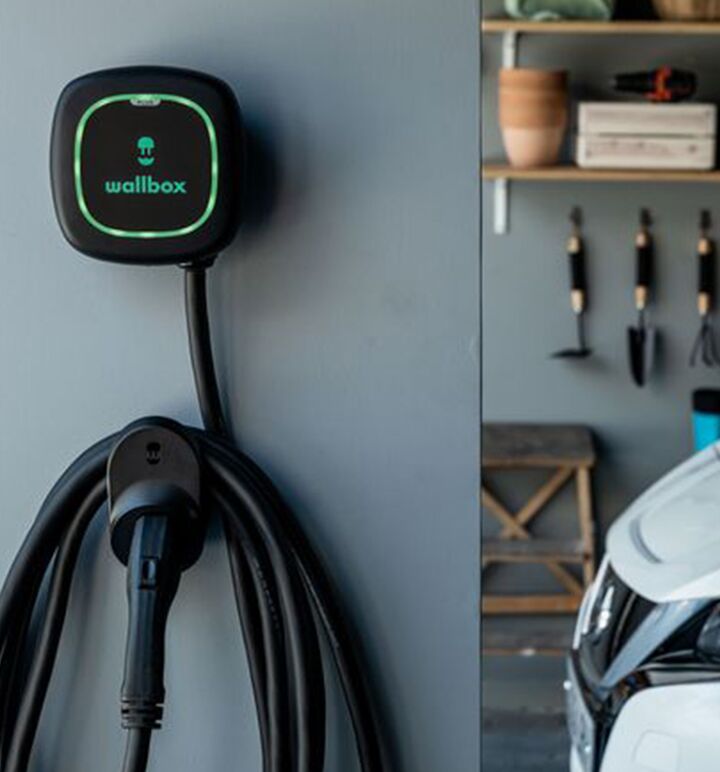
Charging at home
Whether you need a Level 2 home charger or a bundled home charger and home installation, our team of EV specialists at Colonial Nissan will point you in the right direction. Contact us today.1,7,9
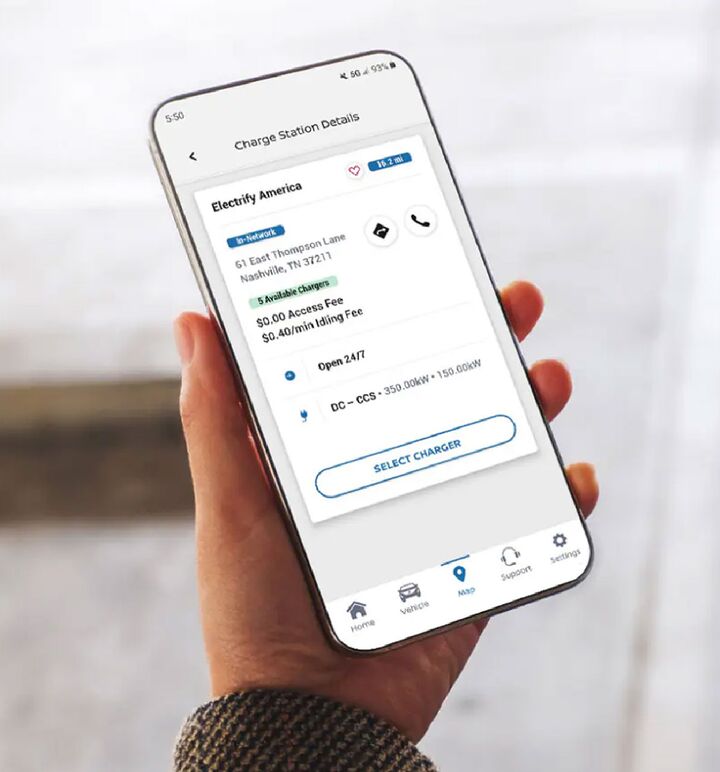
Charging on the road
Charging an electric vehicle at a public charging station is as convenient as charging at home. Most public charging stations simply require you to swipe a credit card to get started. Some stations will recommend you download a mobile app and create an account to begin the charging process. If you have a Nissan ARIYA, just download the MyNISSAN app instead to access the entire NISSAN ENERGY Charge Network of over 100,000 in-network public chargers, including compatible Tesla Superchargers. 1,10,11,12
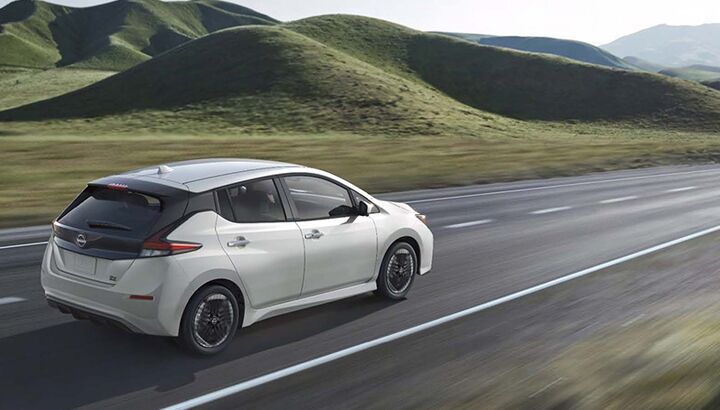
Learn more about EV benefits
Disclaimers
1Charging capacity and times may vary based on battery temperature. For Level 1 home charging use only a 110-120 volt, 15-amp dedicated outlet for charging. See Customer Disclosure Form for details.
2Public charging networks are provided by independent companies, and are not within Nissan's control. Availability of charging stations not guaranteed. See Owner's Manual for safety information.
32023 MY EPA-estimated range up to 304 miles for combined city/highway driving for VENTURE+ FWD. 2023 MY EPA-estimated range up to 289 miles for combined city/highway driving for EVOLVE+, EMPOWER+, and PREMIERE FWD. 2023 MY EPA-estimated range up to 216 miles for combined city/highway driving for ENGAGE FWD. 2023 MY EPA Fuel Economy Estimates 111 City, 95 Highway for VENTURE+ FWD. Based on EPA formula of 33.7 kW/hour equal to one gallon of gasoline energy, EPA rated VENTURE+ FWD equivalent to 111 MPG measured as gasoline fuel efficiency in city driving, and 95 MPG in highway driving. 2023 MY EPA Fuel Economy Estimates 105 City, 91 Highway for EVOLVE+, EMPOWER+, and PREMIERE FWD. Based on EPA formula of 33.7 kW/hour equal to one gallon of gasoline energy, EPA rated EVOLVE+, EMPOWER+, and PREMIERE FWD equivalent to 105 MPG measured as gasoline fuel efficiency in city driving, and 91 MPG in highway driving. 2023 MY EPA Fuel Economy Estimates 109 City, 94 Highway for ENGAGE FWD. Based on EPA formula of 33.7 kW/hour equal to one gallon of gasoline energy, EPA rated ENGAGE FWD equivalent to 109 MPG measured as gasoline fuel efficiency in city driving, and 94 MPG in highway driving. Actual mileage will vary with trim levels, options, and driving conditions. See Customer Disclosure Form for details. Use for comparison only.
42023 EPA estimated range of up to 149 miles for LEAF® S, up to 212 miles for LEAF SV PLUS for combined city / highway driving. 2023 EPA Fuel Economy Estimates 123 City MPGe / 99 Highway MPGe / 111 Combined MPGe for LEAF S, 121 City MPGe / 98 Highway MPGe / 109 Combined MPGe for LEAF SV PLUS. Based on EPA formula of 33.7 kWh equal to one gallon of gasoline energy. Actual mileage will vary with trim levels, options, and driving conditions. See Customer Disclosure Form for details. Use for comparison only.
5See the Owner's Manual for Safety Information.
6Approximate time, with available 240-volt home charging dock (sold separately). Charging time and capacity may vary based on battery temperature. See Customer Disclosure Form for details.
7240V home charging dock sold separately. Not a Nissan product. Some chargers may not be compatible with your ARIYA or LEAF. Contact charger manufacturer before purchasing for information on compatibility and warranty. Nissan does not warrant and is not responsible for loss, including consequential, incidental, or other damages, caused by charger defects, charger incompatibility, or installation services.
8The Nissan lithium-ion battery and battery capacity limited warranty includes coverage for defects in materials or workmanship for
6 months/100,000 miles (whichever occurs first) as well as protection against capacity loss below 9 segments of capacity (out of 12) as shown on the vehicle’s capacity gauge for a period of 96 months/100,000 miles (whichever occurs first). For complete information concerning coverage, conditions, limitations, and exclusions, see your Nissan dealer and read the new vehicle warranty information booklet.
9Some accessories may require installation, which is not included in the Manufacturer’s Suggested Retail Price (MSRP). Dealer sets actual price.
10 Public charging networks are provided by independent companies and are subject to their own respective policies, terms, and/or conditions, and are not within Nissan’s control. Should such independent companies terminate or restrict service or features, service or features may be suspended or terminated without notice or with no liability to Nissan or its partners or agents. Nissan is not responsible for associated costs (including additional equipment or equipment replacements/upgrades, if available) or other third party changes that may be required for connectivity with a charger station. Availability of charging stations not guaranteed.
11 Not a Nissan product. Some chargers may not be compatible with your Nissan ARIYA. Contact charger manufacturer before purchase for information on compatibility and warranty. Nissan does not warrant and is not responsible for loss, including consequential, incidental, or other damages, caused by charger defects, charger incompatibility, or installation services.
12 The NACS Adapter Kit provided by Nissan or purchased from a U.S. Nissan Dealership is deemed by Nissan as the only compatible adapter for Nissan EVs (“Nissan-Compliant NACS Adapter”). Use of an adapter that is not a Nissan-Compliant NACS Adapter is strictly prohibited.
